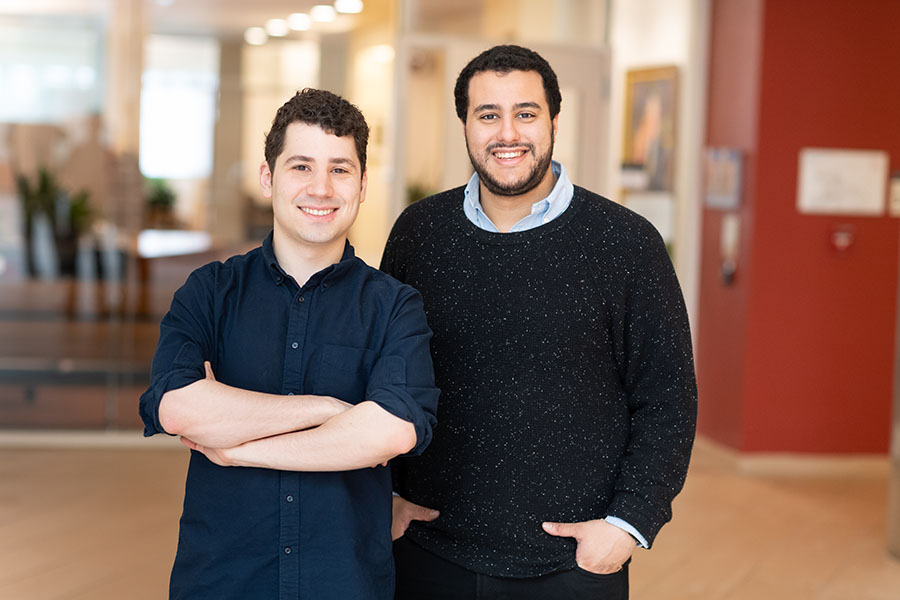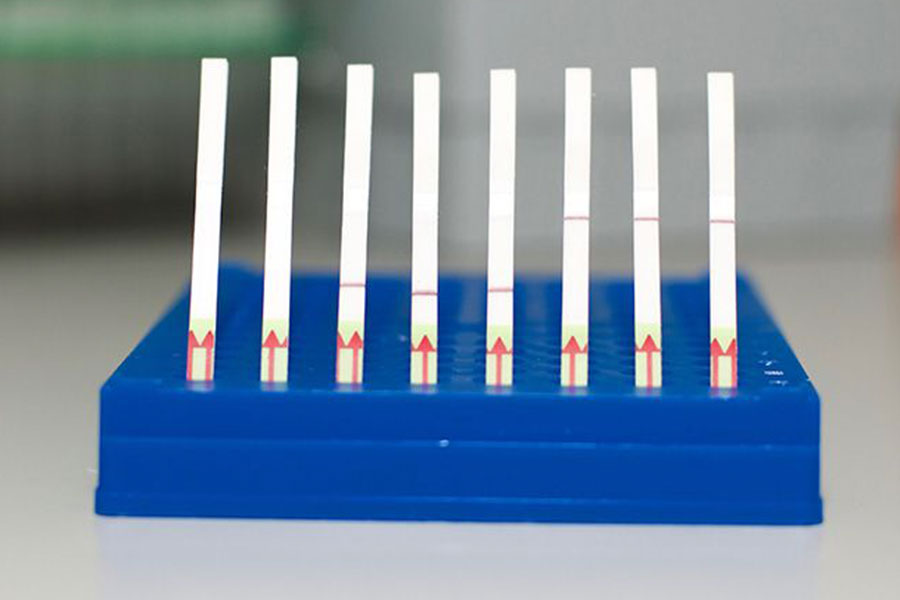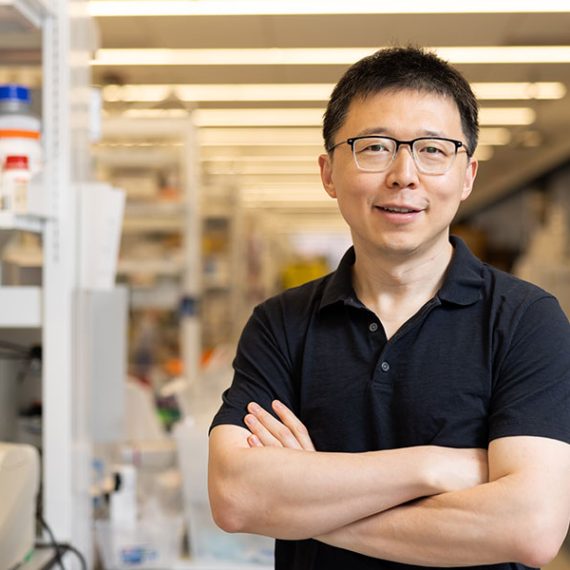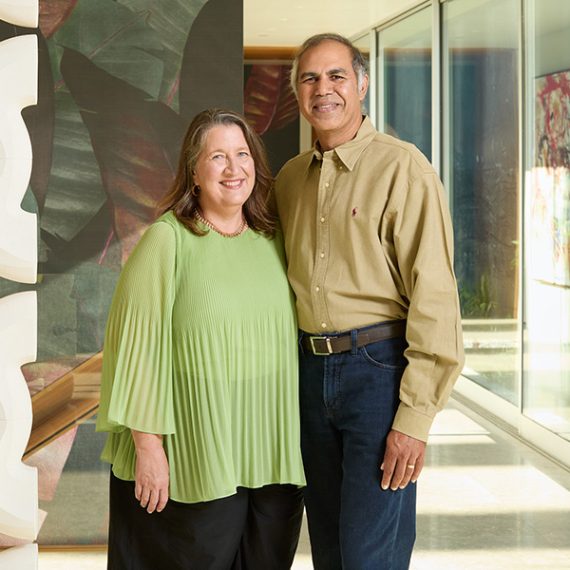MIT Technology Review names McGovern Fellows top innovators under 35
Omar Abudayyeh and Jonathan Gootenberg are recognized for their work to on COVID detection methods and cellular engineering toolkits.

McGovern Institute Fellows Omar Abudayyeh and Jonathan Gootenberg have both been named to MIT Technology Review’s annual list of exceptional innovators under the age of 35. The annual list recognizes “exceptionally talented technologists whose work has great potential to transform the world.”
Abudayyeh was named to the 2020 list for developing a CRISPR-based test for COVID-19; a diagnostic technology that now has potential to rapidly and economically detect a wide variety of diseases.
This year, Gootenberg is being recognized for his work with CRISPR gene editing technologies to develop a cellular engineering “toolkit” that will help scientists better understand — and treat — diseases that affect millions worldwide.
“I’m honored that our lab’s work on molecular tools for cellular engineering is being recognized for its potential impact on diagnostics and therapeutics for patients.” — Jonathan Gootenberg
During their time in the Zhang lab, Abudayyeh and Gootenberg engineered new genome editing tools based on enzymes that they and others discovered from scanning bacterial CRISPR systems. In 2018, Gootenberg and Abudayyeh became the first members of the McGovern Institute Fellows program, which supports the transition to independent research for exceptional recent PhD graduates.
“It’s exciting that alternative uses of CRISPR beyond gene editing are being recognized, including for sensing and diagnosing diverse disease states and that certain CRISPR-based COVID-19 diagnostic assays already authorized for patient use,” says Abudayyeh.

“Omar and Jonathan’s combination of basic discovery and synthetic biology continues to deliver ever more powerful tools for probing and controlling cell activity,” says McGovern Institute Director Robert Desimone. “Such tools are key to the immense challenge of understanding brain function, and treating dysfunction, the goal of the McGovern Institute.”
Now Abudayyeh and Gootenberg is expanding the boundaries of cellular engineering tools, to encompass not only genome editing but also transcriptome control and cell-state sensing — powerful technologies that can change or correct how cells behave without permanently changing their genome. Just as CRISPR has helped decode the role of genes in disease and provided a method for changing gene sequences, the pair’s cellular engineering tools reveal how cells in the body transform in response to disease and provide new means of curing disease. It is the potential of these tools to usher in a new era of cellular discoveries and treatments that caught the attention of the editors at MIT Technology Review.
“We get more than 500 nominations for the list every year, and getting that list down to 35—a task not only for the editors at MIT Technology Review but also for our 30+ judges—is one of the hardest things we do each year,” says Tim Maher, Managing Editor of MIT Technology Review. “We love the way the final list always shows what a wide variety of people there are, all around the world, working on creative solutions to some of humanity’s hardest problems.”
Gootenberg and Abudayyeh continue to work together to build a comprehensive toolkit to both understand and engineer human cells. Gootenberg and his fellow honorees will be featured at the upcoming EmTech MIT conference, MIT Technology Review’s annual flagship event that offers a perspective on the most significant developments of the year, with a focus on understanding their potential business and societal impact. EmTech MIT will be held online September 28-30, 2021.



